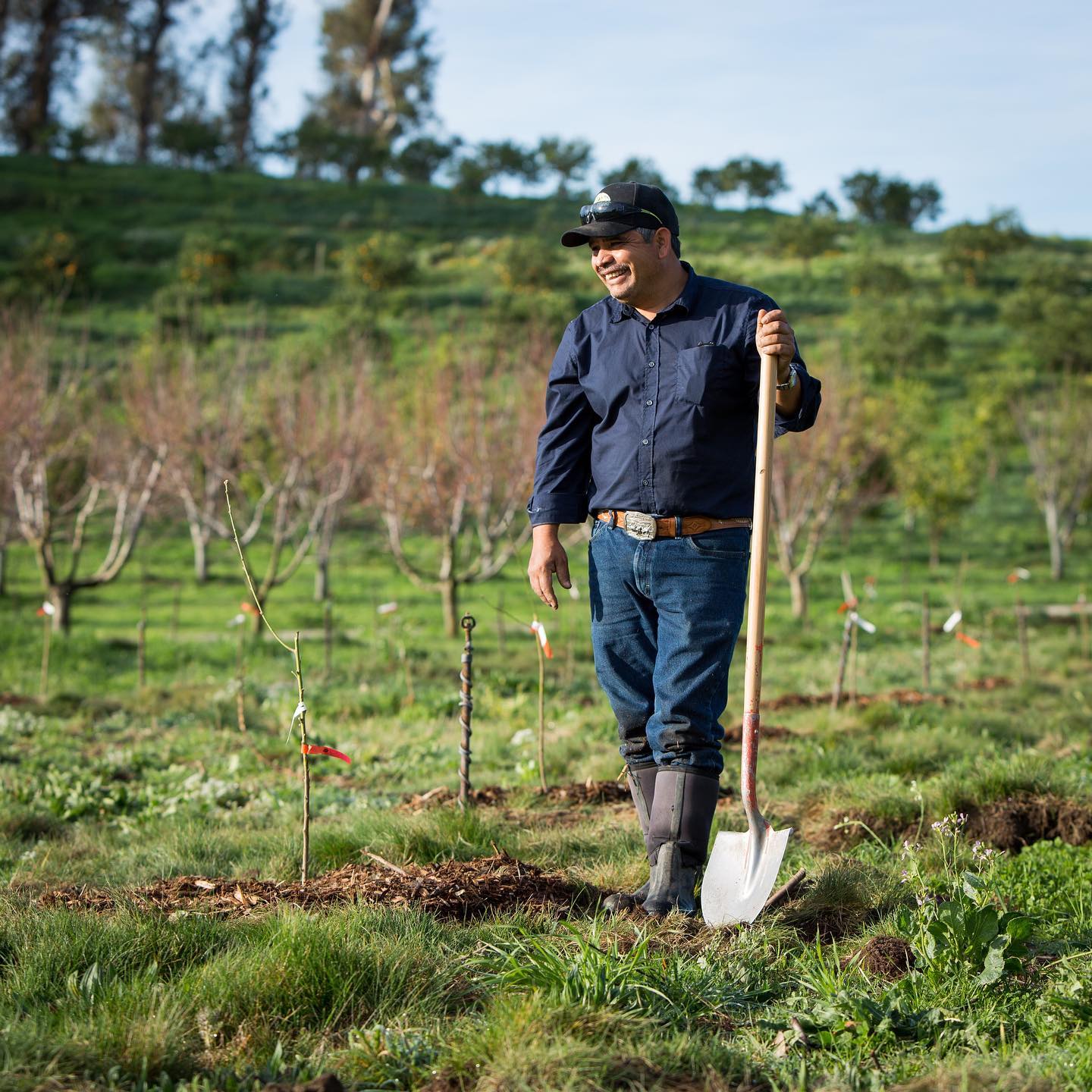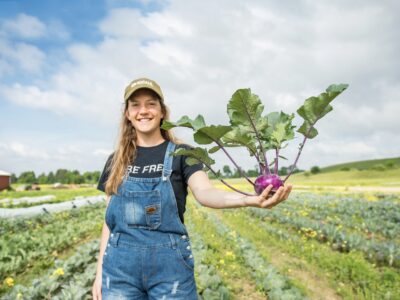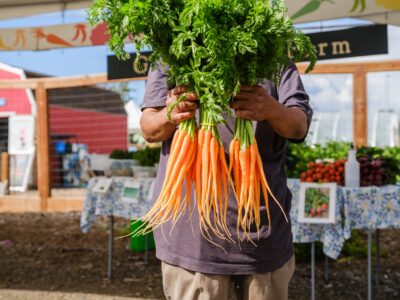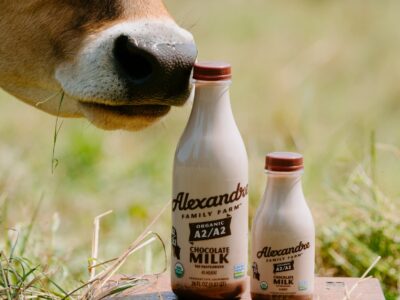Apricot Lane Farms is revolutionizing farming by using the interconnectedness of nature to build soil health, nurture biodiversity, and sustainably grow nutrient-dense foods. The Moorpark, CA, operation has become a positive case study in turning degraded topsoil into healthy, productive soil for vegetables, fruits, and grains. It grows more than 200 crops and supports insects, animals, and wildlife without a single synthetic pesticide or fertilizer.
Photo Courtesy Apricot Lane Farms
Over the past century, most modern farming techniques have destroyed the Earth’s topsoil, the foot-deep dirt where most of the world’s food is grown. More than 50% of global topsoil lacks the proper nutrients needed to support crops and a healthy ecosystem.
Apricot Farms owners John and Molly Chester wanted to see how the state of their land could be reversed. When they purchased the 200+ acres in 2011, much of the soil was heavily damaged by years of industrial agriculture and climate change — it wouldn’t grow crops. Over the past decade, the Chesters successfully reversed the topsoil’s health. But how did they do it?
Photo Courtesy Apricot Lane Farms
“We were really interested in this idea of farming in a way that was more regenerative in nature and less extractive,” John Chester said in Fast Company’s “World Changing Ideas” podcast. “We’re mimicking these processes and patterns in nature to enhance soil systems, so we don’t have to wait 5,000 years for the soil to repair itself.”
The couple talked to traditional farmers, scientists, and Native Americans about the best way to save the land with soil so barren John Chester describes it on the company’s website as they “bought a bank that had been robbed.”
It soon became obvious that at Apricot Lane Farms, every living thing would be a part of keeping the land’s ecosystem healthy and sustainable.
The essential starting point was earthworms. These creatures naturally digest and break down the soil. Their waste is made up of phosphorus and nitrogen, as well as healthy bacteria — all crucial components of vibrant topsoil.
The Chesters began the process of regenerating their soil in 40-foot-long compost bins where hundreds of thousands of earthworms went to work using their natural digestive process to break down organic matter. Twelve tons of that better-balanced soil was then spread back across the land each year. But it wasn’t enough.
The couple soon invented what they named the “poop jacuzzi,” a vat in which soil is heated to raise the microbial population exponentially. That extra-rich compost is then sprayed on the land and trees. Then, herds of grazing animals — both wild and domestic — help naturally spread that nutrient-rich soil across the entire acreage in a sustainable cycle. As one problem comes up, Apricot Lane Farms finds a natural way to solve it.
Photo Courtesy Apricot Lane Farms
The farm’s experiment has shown that depleted topsoil can be rejuvenated naturally. It continues to track all of the nutrient and bacterial changes across its land to help growers across the globe cultivate healthier food for the future.
“Not only are you growing super great-tasting food with deep nutrient value, but these practices sequester massive amounts of carbon from the atmosphere, methane, and water, among other things,” John Chester said. “The lens — that is transferable to any place on the planet — is just focusing every decision through this idea of [enhancing] the biodiversity of soil and the biodiversity of life above the soil system, plant diversity, pollinator diversity, habitat for animals because they’re the regulators of the farm.”





